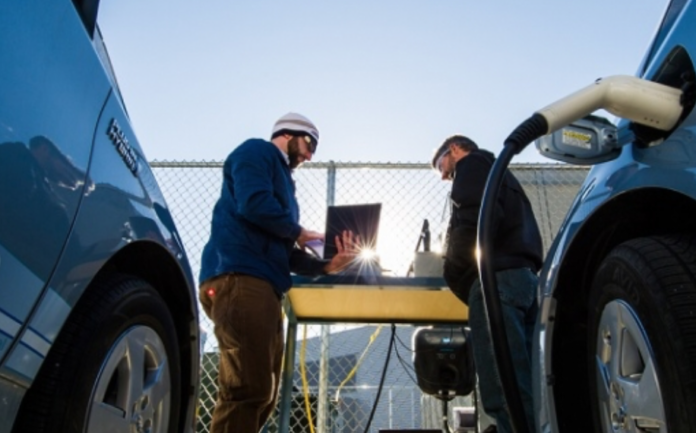The U.S. Department of Energy (DOE) has awarded approximately $6 million to five organizations that will develop training programs for emergency responders, building managers and owners, and other officials interacting with alternative-fuel vehicles and their chargers, solar energy and storage systems, and energy-efficient building technologies.
Led by or working with professional associations, work done through these projects could educate hundreds of thousands of U.S. safety and building workers. These professionals are at the front lines as more solar systems are built, more vehicles run on batteries and nontraditional fuels, and more buildings become “smarter” and more energy-efficient. A well-trained workforce familiar with clean energy will improve safety, expedite permitting, reduce liability and insurance costs, and increase consumer confidence.
“As advanced energy technologies are built across the U.S., firefighters, building managers, mechanics and other workers have new job responsibilities,” says Daniel R Simmons, assistant secretary of Energy Efficiency and Renewable Energy (EERE). “These projects will help them work with new energy technologies safely and effectively.”
The Educational Materials for Professional Organizations Working on Efficiency and Renewable Energy Developments (EMPOWERED) funding program will create training for two groups: first responders, and building managers, owners and code officials.
Building managers, owners and code officials must ensure that any new efficiency, storage, solar or electric vehicle technology meets all relevant local codes and regulations and ensures the safety and comfort of the people who live and work there. Those without access to accurate information or who are unfamiliar with new technologies may prevent adoption or increase the costs associated with it.
These projects will develop new training materials to reduce the costs associated with and the delays caused by “red tape”:
–Interstate Renewable Energy Council: $2.1 million. Building upon its existing training website, IREC will introduce educational materials and resources on clean energy codes, standards, permitting and inspection for building managers, owners and officials interacting with solar energy and storage systems
–Southface Energy Institute: $750,000. In partnership with the American Institute of Architects, Energy & Environmental Building Alliance, International Code Council and others, this project team will create educational programming and resources that can be tailored to different markets and jurisdictions
–New Buildings Institute: $500,000. This project team will work with the U.S. Energy Storage Association and others to develop guides and education modules to streamline the design, permitting, inspections, and maintenance of solar, storage and electric-vehicle charging stations for single- and multifamily homes and offices.
Addressing these challenges now will enable these professionals to prepare for the future. Solar+storage accounted for 4% of distributed solar energy systems in 2019 and is expected to grow to 26% by 2025. The market for smart and connected devices in buildings is growing 20% every year. Electric and hybrid electric vehicles could account for 7.5% of new light vehicle sales by 2025, according to the Energy Information Administration.







